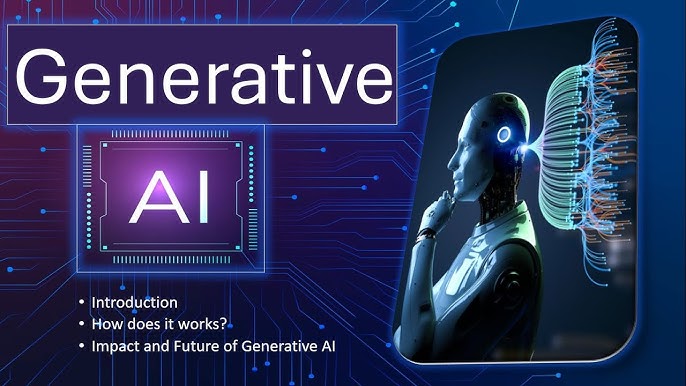Physical Address
304 North Cardinal St.
Dorchester Center, MA 02124
Physical Address
304 North Cardinal St.
Dorchester Center, MA 02124

In today’s digitally driven world, has become a powerful force, transforming how content is created, consumed, and conceptualized. Whether you’re a blogger crafting stories or a marketing pro designing campaigns, understanding what generative AI truly means for content creation is both exciting and essential. So let’s unravel what it is, how it works, and what it holds for the future of storytelling and digital content.
At its core, generative AI refers to artificial intelligence systems specially designed to whether that’s written text, images, music, or even video based on patterns learned from existing data. Unlike traditional AI that only recognizes or classifies, generative often with startling originality.
Think of tools like GPT-powered chatbots that help you draft blog posts, or image-generation platforms that design visuals just from a simple prompt. These systems don’t just rearrange existing words or visuals they generate novel content from scratch, filling the gaps with creative, plausible material.
Creators can now generate outlines, journey maps, or even full drafts in seconds. Gone are the days when staring at a blank page felt like wrestling with words.
Generative AI shines by offering fresh perspectives unexpected plot twists for a story, new color palettes for visuals, or unique slogans for marketing campaigns. It’s like having a collaborative brainstorming partner available 24/7.
When quality content needs to be rolled out regularly daily posts, newsletters, social media updates generative AI helps keep pace. It’s efficient, scalable, and budget-friendly.
Whether you’re addressing different audience segments or exploring new niches, generative AI can adapt tone, structure, and messaging to align with each group all without overworking your creative team.
At the heart of this technology are two main components:
Here’s a simple analogy: Generative AI is like a highly trained chef who’s tasted endless recipes. You tell them a theme say, “mystery thriller” or “sleek product ad”and they whip up something new that still fits the style you asked for.
Bloggers can use AI to draft outlines, intro paragraphs, or even entire articles. Imagine telling the AI: “Write a friendly, SEO-focused 800-word post on sustainable travel tips.” Within moments, you’ve got a structured, keyword-rich draft to refine.
Need a punchy tweet or Instagram caption? Just give a prompt “Fun, adventurous tone, 140 characters max” and get ready-made captions that fit your brand voice.
Platforms like DALL·E or Midjourney let creators generate unique visuals or illustrations from text prompts. Want a vintage-style poster of a futuristic cityscape? You’ve got it in seconds.
Turn a blog into social snippets, video scripts, or even an infographic script. Generative AI helps transition content across formats, ensuring every piece stays consistent and repurposed efficiently.
As generative AI grows smarter, content creation will increasingly feel like a partnership. You’re co authoring with the machine harnessing your unique insights and instincts, supported by AI’s data-driven creativity and speed.
What’s next? Expect fully adaptive content that learns from real-time feedback, hyper-personalized messages for each reader, or immersive storytelling that adapts on the fly. In this near future, writers, designers, and marketers wield AI not as a crutch, but as a creative amplifier.
To maximize SEO impact for “Generative AI Explained: What It Means for Content Creation“, we’ve woven the keyword naturally into:
Other SEO-friendly elements included:
Generative AI is here to stay and for good reason. It’s fast, versatile, and opens creative pathways previously locked behind writer’s block or time constraints. Yet, it works best when guided by human intuition, empathy, and critical thinking.
By mastering the art of prompting, aligning AI with your voice, and maintaining ethical transparency, content creators can ride the wave of AI-powered innovation without losing their creative essence.
So whether you’re drafting blog posts, social media campaigns, or long-form narratives, remember: generative AI is not replacing you it’s your creative collaborator.
Generative AI is not just a passing trend it’s a transformative tool reshaping the way content is imagined, produced, and delivered. By blending human creativity with AI-powered efficiency, creators can unlock new opportunities for innovation while saving time and resources. The key lies in balance: letting AI handle repetitive or time-consuming tasks while humans bring authenticity, emotional depth, and strategic direction. As the digital world evolves, those who embrace generative AI responsibly will find themselves not only keeping up with the pace of change but leading it.